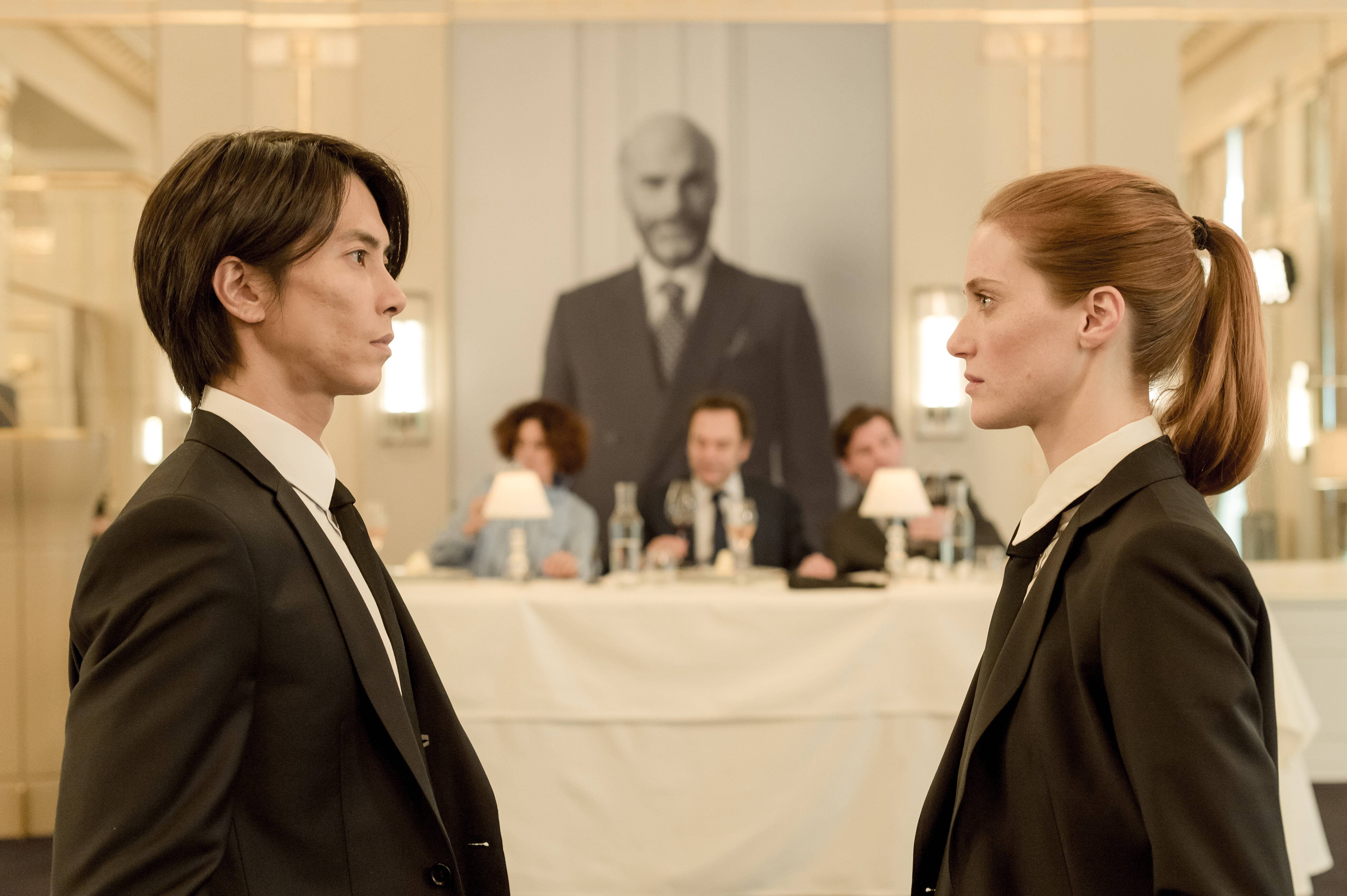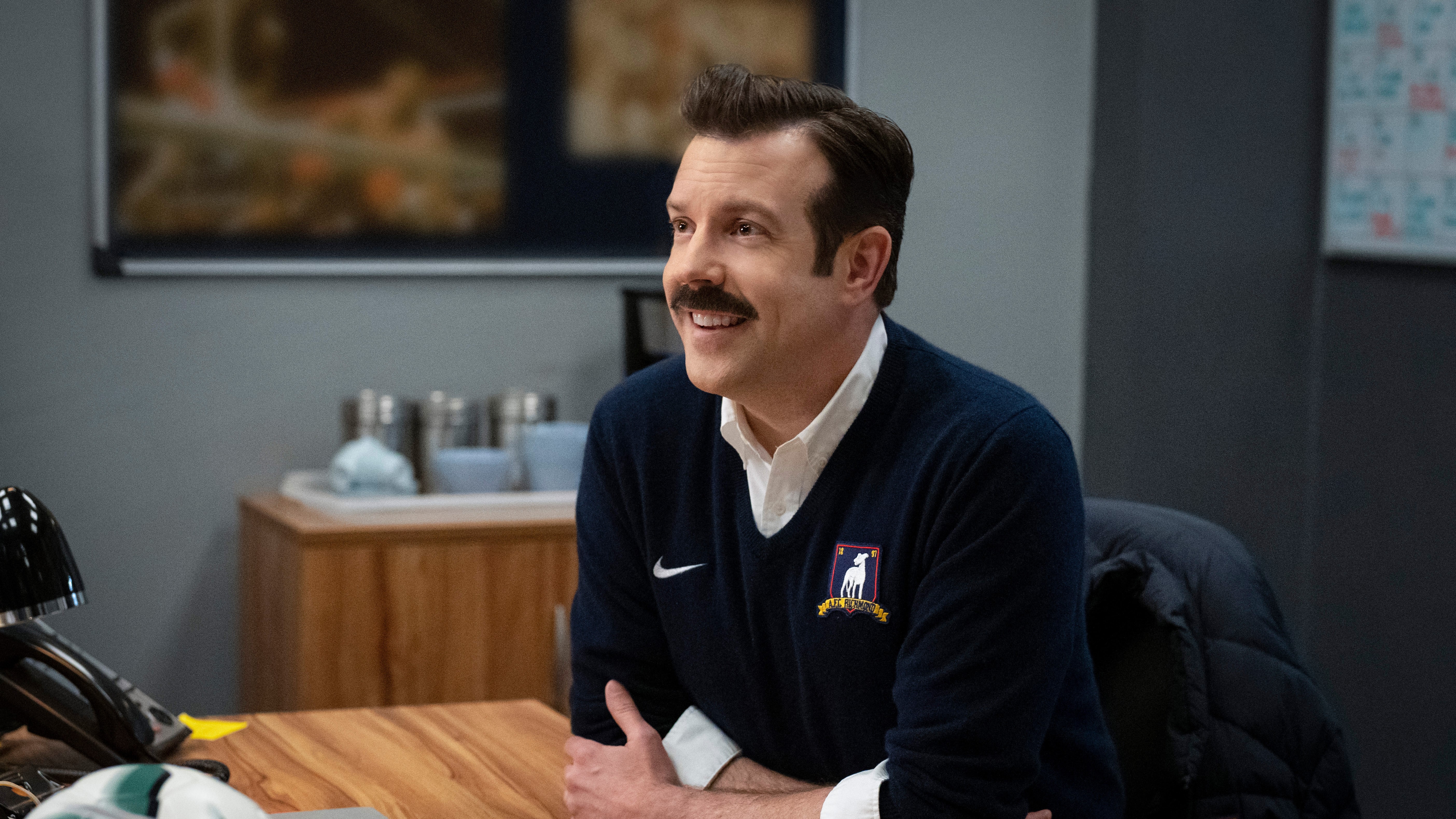‘Made for Love’ and the rise of the tech-bro billionaire villain
'Made for Love' on HBO Max features a tech-bro billionaire bad guy who seems all the more terrifying than the pop culture villains of old.

This post contains spoilers for Made for Love.
There are few villainous tropes easier to root against than the rich baddie. It’s not exactly an arduous task as a viewer or pop culture consumer to boo the obscenely wealthy jerk who, rather than use his unfairly gained piles of cash to help the poor or fight injustice, spends all his time trying to kill James Bond from his volcano lair. There’s a simplicity to the rich villain: not only are they the perfect opposition to our lowly scrappy underdog but the sheer power of money makes a lot of storytelling inconveniences easy to bypass. Why worry about mark-up costs on your planet-destroying laser when you’re too rich to care? Nowadays, however, the rich baddie has undergone a distinctly millennial rebranding. He’s more likely to be seen in plain black clothing talking about how he can change the world for the better, and rather than hired goons, he’s got a cultlike fanbase hanging on his ever word. Exit the maniacal millionaire; enter the tech-bro billionaire.
In Made for Love, the wildly dark comedy that premiered on HBO Max earlier this month, Hazel Green-Gogol is on the run from her husband. After a decade of questionably wedded bliss to the Silicon Valley genius Byron Gogol, she discovers that he implanted a high-tech tracking device in her brain without her knowledge. He's also announced to the world that the pair of them will soon “share one mind” thanks to his latest invention, a chip that will allow couples to meld into one consciousness. Hazel also didn’t agree to this. Byron claims that this terrifying development is just another thing that people in love will happily to do understand one another better. It doesn't seem to enter his own mind that tracking down his wife's every move as she does everything to get away from him for her own safety isn't a good thing.
As played by Billy Magnussen, Byron Gogol is a character cut from a very familiar cloth. You can practically see Made for Love's writers' room inspiration board chock full of images of Mark Zuckerberg, Elon Musk, and Elizabeth Holmes floating overhead. The creator of a tech brand that is obsessed over by millions of people, Gogol is, from the first moment the audience sees him, a transparently nasty piece of work. This is a guy who forces his wife to rank her orgasms with star ratings before going over those reviews with one of his employees. Yet he inspires such devotion in those around him, deified by customers who fight one another for his new tablet and tech minions who gaze at him like a god. Hazel seems to be the only one not brainwashed by his shtick, something that perplexes him. Why would he understand basic things like nuanced emotions? He’s doing everything in his power to eliminate such inconveniences.
Made for Love's Byron Gogol is but one of several recent examples of the tech-bro coming to the forefront as a cultural nemesis. In Alex Garland's Ex Machina, Oscar Isaac plays a mega-wealthy tech CEO working to create artificial intelligence capable of free thought. He's a sleazeball narcissist who seems to view his astounding creations as mere tinker toys he can dance with (although he does dance very well.) 2017's The Circle, based on the novel by Dave Eggers, sees its tech CEO, Eamon Bailey, as a figure of terrifying overreach cloaked in cozy benevolence. Such is an inevitability when you cast Tom Hanks in the role.
And then there is Lex Luthor, as played by Jesse Eisenberg in Batman v. Superman: Dawn of Justice. A noted contrast to the iconic image of Luthor as a physically domineering gentleman of sinister charisma, this take on Superman’s enemy is far more deliberately exasperating. With his greasy long hair and mile-a-minute motormouth, Eisenberg’s Luthor is clearly the bratty younger brother of Zuckerberg as written by Aaron Sorkin. He’s intelligent but deeply antagonistic, and seemingly enjoys chaos for the sake of it rather than a tangible end goal. He may have been a divisive take on the character but there was clear method behind the madness.
We live in a society (sorry) where the geeks have inherited the earth, and the results aren’t quite as utopian as we had hoped for. The perennial bullied underdogs of ‘80s comedies are now in charge, and they’re wielding their masculinity in a different but no less unnerving way. These characters are wildly rich, all-powerful without super-strength or laser-eyes, and they have no qualms about using those forces to railroad everyone in their path. Often, they wrap it up in familiar buzzwords like “disruption” and pretend that their almighty gain is a democratic delight for the common man. Lex and Byron aren’t charismatic or especially nice, but they don’t have to be. Make enough money and basic human decency becomes unnecessary. Indeed, eschewing such conventions is rewarded.
Get the What to Watch Newsletter
The latest updates, reviews and unmissable series to watch and more!
It has often been said that pop culture villains reflect contemporary concerns. The Cold War inspired endless Soviet spy antagonists and character actors with thick Russian accents plotting communist takeovers. During the Gulf War and following 9/11, the stock “Arab bad guy” was everywhere, with the Middle East even framed as a merciless death trap through choice cinematography and music cues. Films like Wonder Woman 1984 borrowed liberally from the ‘80s Greed is Good villain but it didn’t take a genius to see the Donald Trump inspirations at play. In the age of social media domination, always-online life, fake news, and the widening gap between rich and poor, the tech-bro becomes the turtlenecked embodiment of our fears.
As corporate monopolies grab greater amounts of media control and every aspect of our lives is up for monetization, that image of the bland tech guru in a hoodie who seems wholly detached from humanity becomes pretty terrifying. It’s not as though we’re short of such figures in our daily lives either. These figures are romanticized by media, given magazine covers and heralded as modern-day heroes who will revolutionize daily life, even as they exacerbate the staggering inequalities at play in daily life. Consider how much money Jeff Bezos has made during the COVID-19 pandemic and the often-insidious lengths that Amazon has reportedly gone to in order to avoid letting overworked and underpaid staff unionize. The immense personal overreach of Facebook’s algorithm and the way that it allowed the most damaging political and personal lies to flourish helped to damage the 2016 American election, yet Zuckerberg’s power has only grown. No matter how many times Elon Musk puts his foot in his mouth or opposes union efforts, he’s still near worshipped by his followers.
The modern villain doesn’t need to cackle or give dramatic speeches over pools full of man-eating piranhas. All he has to do is offer something we really want and blind the public into accepting all of the terrifying add-ons. In Made for Love, Byron Gogol seems horrifyingly unstoppable because we know the trajectory that people like him face. He’s a disruptor, and when you have enough money and sound smart enough talking about it, the people will follow.
Kayleigh is a pop culture writer and critic based in Dundee, Scotland. Her work can be found on Pajiba, IGN, Uproxx, RogerEbert.com, SlashFilm, and WhatToWatch, among other places. She's also the creator of the newsletter The Gossip Reading Club.











